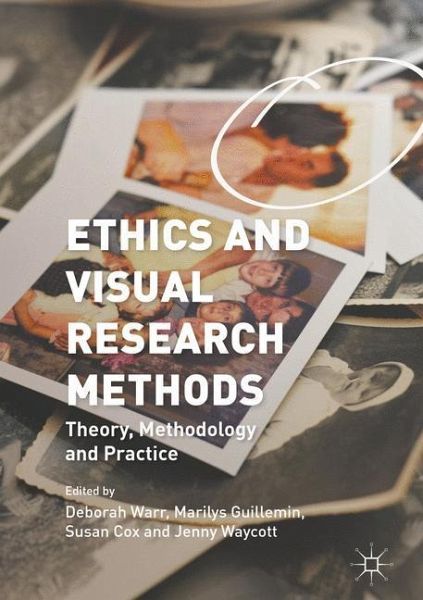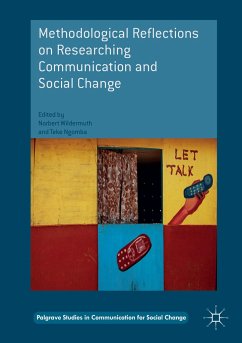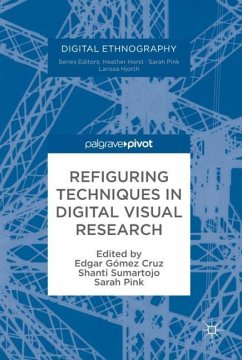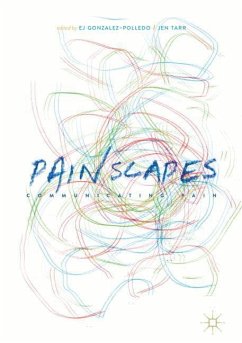
Ethics and Visual Research Methods
Theory, Methodology, and Practice
Herausgegeben: Warr, Deborah; Guillemin, Marilys; Cox, Susan; Waycott, Jenny
Versandkostenfrei!
Versandfertig in 6-10 Tagen
91,99 €
inkl. MwSt.

PAYBACK Punkte
46 °P sammeln!
This collection presents stories from the field that were gathered from researchers using a breadth of visual methods. Visual methods refer to the use of still or moving images either as forms of data, to explore research topics and explorations of artistic practice. In addition to well-established visual methods, such as photo-voice and photo-elicitation, the possibilities for visual methods are flourishing through the proliferation of visual culture and developments in digital technologies. Methodological and ethical issues are emerging as visual methods are adapted and applied to answer new...
This collection presents stories from the field that were gathered from researchers using a breadth of visual methods. Visual methods refer to the use of still or moving images either as forms of data, to explore research topics and explorations of artistic practice. In addition to well-established visual methods, such as photo-voice and photo-elicitation, the possibilities for visual methods are flourishing through the proliferation of visual culture and developments in digital technologies. Methodological and ethical issues are emerging as visual methods are adapted and applied to answer new kinds of research questions, and in varied settings and populations. Authors offer practical and thoughtful discussions of emerging methodological and ethical dilemmas they encountered in innovative projects that used visual methods either in combination with other methods or as a stand-alone method. The discussions will be of interest to those seeking to understand the value, and potentialethical risks, of visual methodologies for social research.














